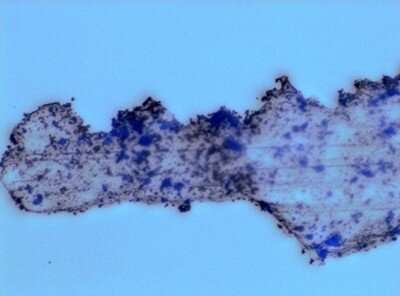Small pieces of plastic are everywhere, stretching
from urban environments to pristine wilderness. Left to their own
devices, it can take hundreds of years for them to degrade
completely. Catalysts activated by sunlight could speed up the
process, but getting these compounds to interact with microplastics
is difficult. In a proof-of-concept study, researchers reporting in
ACS Applied Materials & Interfaces developed self-propelled
microrobots that can swim, attach to plastics and break them
down.



